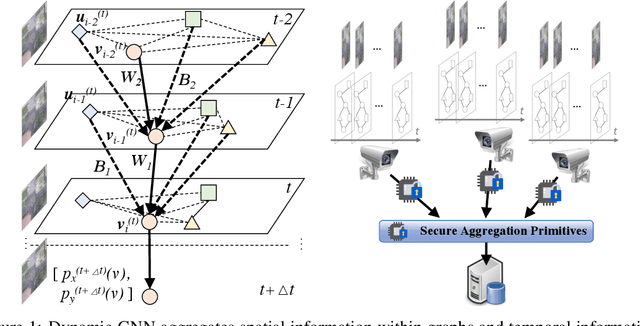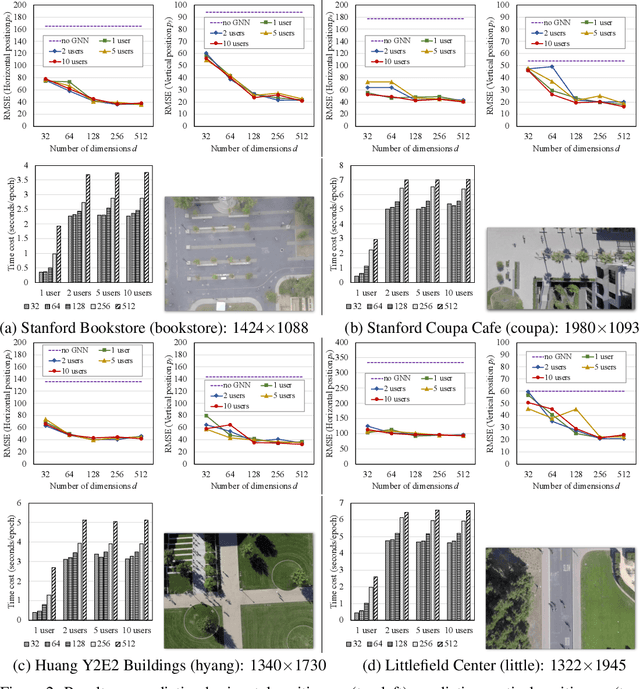Federated Dynamic GNN with Secure Aggregation
Paper and Code
Sep 15, 2020



Given video data from multiple personal devices or street cameras, can we exploit the structural and dynamic information to learn dynamic representation of objects for applications such as distributed surveillance, without storing data at a central server that leads to a violation of user privacy? In this work, we introduce Federated Dynamic Graph Neural Network (Feddy), a distributed and secured framework to learn the object representations from multi-user graph sequences: i) It aggregates structural information from nearby objects in the current graph as well as dynamic information from those in the previous graph. It uses a self-supervised loss of predicting the trajectories of objects. ii) It is trained in a federated learning manner. The centrally located server sends the model to user devices. Local models on the respective user devices learn and periodically send their learning to the central server without ever exposing the user's data to server. iii) Studies showed that the aggregated parameters could be inspected though decrypted when broadcast to clients for model synchronizing, after the server performed a weighted average. We design an appropriate aggregation mechanism of secure aggregation primitives that can protect the security and privacy in federated learning with scalability. Experiments on four video camera datasets (in four different scenes) as well as simulation demonstrate that Feddy achieves great effectiveness and security.
 Add to Chrome
Add to Chrome Add to Firefox
Add to Firefox Add to Edge
Add to Edge